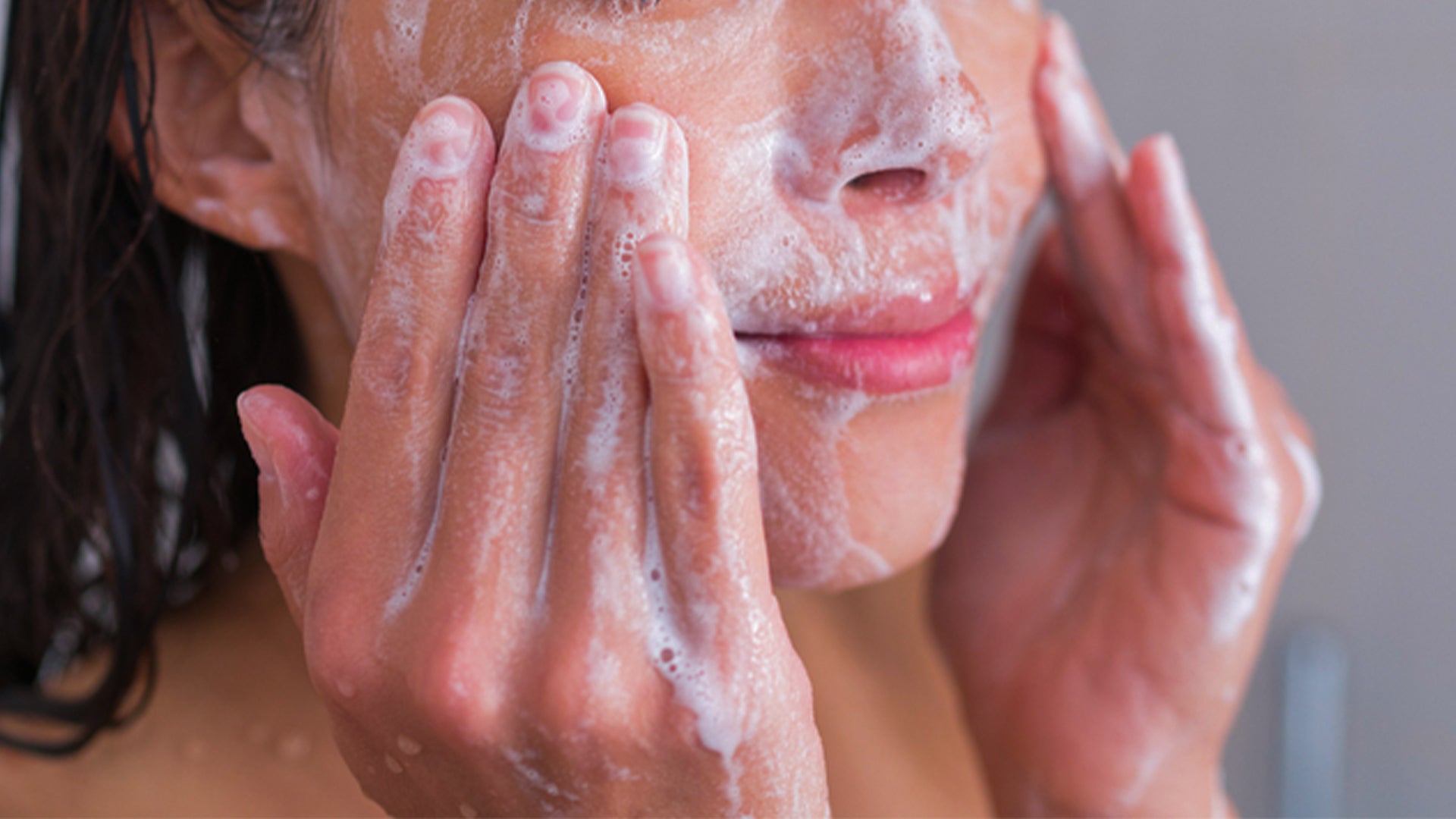Written by- ujjvala
Watching skincare routine videos by social media influencers is fascinating, isn't it? The cinematography of splashing water and the foamy face wash that instantly brightens the skin takes us into an imaginary world of experiencing it in reality. We hope most of us could relate to this.
Face washes are usually used after waking from bed for freshness and before going to bed to remove makeup. Before delving further, most of us have slight confusion between face washes and cleansers. Let’s get some basic differences and ideas of these skincare products.
Face washes are water-based formulations that come in gel and foam forms. Their foaming properties thoroughly clean pores while also combating oil production. Cleansers, on the other hand, come in a variety of textures, including thick, milky, cream, and clay, and their primary function is to cleanse, moisturise, and soothe your skin. Synthetic detergents are used in both cleansers and face washes to remove dirt. These detergents, also known as surfactants (surface active agents), are made up of a hydrophilic (water liking) and a hydrophobic (oil liking) tail.
The hydrophobic components bind to the oil and dirt to create micelles. With a decent rinse, these micelles that trap dirt are washed away.
For acne-prone skin, we suggest using face washes over cleansers as they possess strong cleansing effects. Face washes' foaming action helps to prevent pimples and clogged pores while also removing deep-seated oils. Some things need to be kept in mind as over rinsing has adverse effects. This is because over-cleansing can dry out the skin and lead to overproduction of sebum and thus more possibility of having breakouts.
Ingredients To Look In Face Washes To Treat Acne
Salicylic acid
Salicylic Acid is a skincare ingredient that acne sufferers should be aware of. Because salicylic acid, a beta-hydroxy acid (BHA) are oil-soluble, can delve deep into pores to fight the pimple.
Salicylic acid is much more impactful in face wash because the active ingredient remains on your skin.
It has amazing exfoliating abilities, which can prevent pimples from forming. It works by gently exfoliating the top layer of skin to disable the accumulation of oil and dead skin cells.
Most interestingly, scientists discovered that Salicylic Acid is safe for all skin types, including sensitive skin.

Catechins are substances found in green tea. Catechins are natural polyphenols meaning they are plant-based compounds that have antioxidant, anti-inflammatory, and antibacterial properties. They also fight against free radicals.
Green tea is particularly high in epigallocatechin gallate (EGCG), a polyphenol that has been shown in research to help with acne and oily skin.
EGCG not only has anti-inflammatory and antimicrobial properties but also lessens lipid levels and is anti-androgenic, making it effective at lowering sebum (oil) secretions in the skin.
Androgens are hormones that the body naturally produces. Androgen levels that are high or fluctuating encourage the sebaceous glands to secrete more sebum. Excess sebum can clog pores and promote bacterial growth, resulting in hormonal acne. This cycle can be broken with the help of EGCG. This Centella Green Tea Face Wash helps treat acne whilst also hydrating the skin.
What to avoid in face wash?
Sulphates
When sulphuric acid reacts with other chemicals, sulphates are formed.
SLS (sodium lauryl sulphate) and SLES (sodium lauryl ethoxylate) are two common sulphates found in cleansers and face washes (sodium Laureth sulfate). They are made from petroleum and plant oils such as coconut and palm oil.
Sulphates produce lather or foam, but they can aggravate the eyes and skin. If you have super dry or sensitive skin, you should avoid using frothing face washes.
Mineral Oil
Mineral oil has the potential to clog pores and cause breakouts. Natural plant oils, on the other hand, will nourish the skin without blocking up the pores.
Fragrances
The fragrance contains a lot of chemicals that can cause adverse reactions in the skin. If you enjoy fragranced products, look for those that contain essential oils or plant extracts.
While shopping for face washes, look for labels such as ‘oil-free’, ‘paraben-free’ etc. that act as filters to select ideal face washes for acne-prone skin. Also, use mild soaps, as normally the Ph of soaps is around 10 which disrupts skin’s Ph which is around 4.7 to 5.7. As rightly said, “ An ounce of prevention is worth a pound of cure”, which would help us treat skin issues.
References:
https://pubmed.ncbi.nlm.nih.gov/16910029/
https://pubmed.ncbi.nlm.nih.gov/25115352/






 +91 9347578980
+91 9347578980